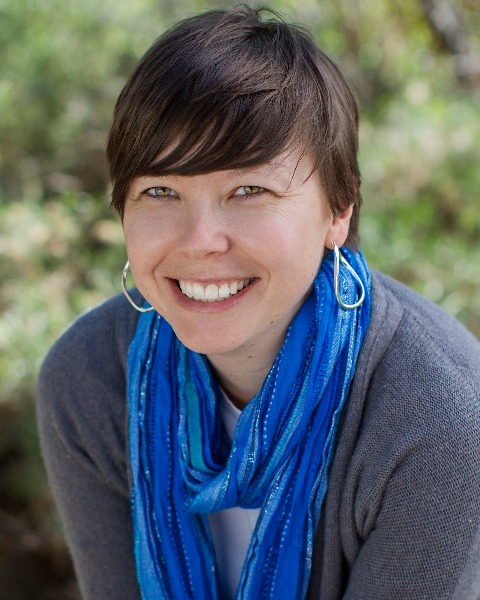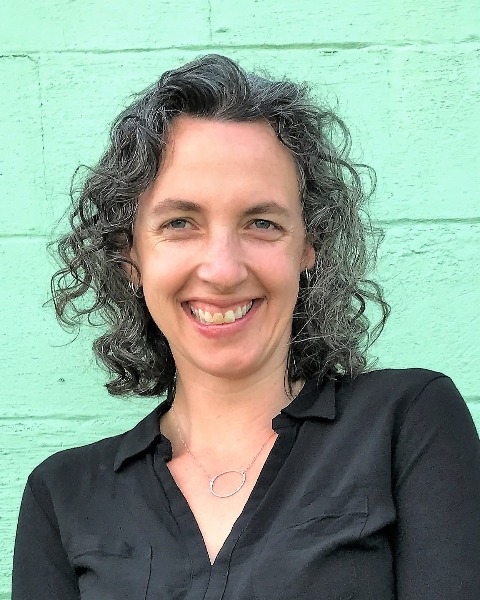Back
Research and Program Evaluation
Building Evaluation Capacity
Applied Evaluation: Leveraging Feminist Principles to Teach Evaluation and Build Evaluation Capacity
Sunday, November 13, 2022
10:00 AM – 10:30 AM
Location: Palos Verde A

Susan Halverson, MS
Doctoral Student
Portland State University
Portland, Oregon, United States
Amie Thurber, PhD
Assistant Professor
Portland State University
Portland, Oregon, United States
Author and Presenter(s)
Contributor(s)
Overview: This case study explores the process and outcomes of an Applied Evaluation course designed to equip students with the foundations of evaluation design and build the evaluation capacity of community-based agencies. This experiential course centers principles of feminist community engagement—relationality, border crossing, reflexivity, and disruptive pedagogy (Iverson & James, 2014).Proposal text: Evaluation practice requires both technical and relational skills (Russ-Eft et al., 2008). While evaluation coursework often emphasizes the former, professional evaluators note the need for enhanced interpersonal and reflective skills (Galport & Azzam, 2017). In response, there is growing interest in teaching evaluation through community-engaged courses (Bakken, Nunez & Couture, 2014; Davis, 2006). In this approach, students apply their in-class learning to meet the evaluation needs of a community partner. However, questions remain regarding how to make such courses meaningful for both students and community partners, who may have different goals and expectations. Centering principles of feminist community engagement— relationality, border crossing, reflexivity, and disruptive pedagogy (Iverson & James, 2014)—may enhance both populations’ experiences.
This case study explores an Applied Evaluation course informed by these principles. The course equips students with the foundations of evaluation design and builds the evaluation capacity of community-based agencies. A cohort of 3-5 community partners participates fully in the course. A team of MSW students is assigned to work with each partner and create a program evaluation design that the partner can later implement. Curriculum and in-class activities scaffold the team work. Simultaneously, the course requires a high level of initiative, enabling students to ‘practice’ being professional consultants to their partner. Drawing on three years of instructor reflections, interviews with community partners, students’ written reflections and course evaluations, we explore how anchoring in feminist principles enriches learning for students and community partners.
Centering relationality: This course encourages attention to multiple layers of relational accountability. In written assignments and in-class activities, students attend to their community partners’ evaluation needs, their individual learning goals, and their peers’ needs and goals. The instructors balance responsibility to support students’ learning needs and to meet the expectations of community partners.
Encouraging Border Crossing: Rather than sending students into the community to practice skills gained in class, this course brings community members into the classroom. In this space, students are both learners and consultants; community partners are both agency-experts and students of evaluation. The instructor is both an evaluation coach and an active collaborator with each team.
Integrating Reflexivity: As students practice the ‘soft skills’ of collaboration each week, instructors encourage reflexivity through assigned reflections on group work competencies. As students apply the ‘hard’ skills of evaluation design, instructors facilitate small and large group discussions regarding the ethical and practice challenges of the field.
Utilizing disruptive pedagogy: The primary course deliverable is designed to meet each community partner’s specific needs and serve as evidence of student learning. This course adopts a mentoring model of student writing, wherein students iteratively draft elements of their evaluation plan throughout the term, and the instructor provides in-text edits and comments. This level of collaboration with student teams serves as an important form of professional mentoring.
This paper integrates outcomes from students and community partners, and closes with implications for developing community-engaged applied evaluation courses. All course materials- which emphasize anti-racist, decolonizing, feminist, and participatory approaches to evaluation- will be available to attendees upon request.
This case study explores an Applied Evaluation course informed by these principles. The course equips students with the foundations of evaluation design and builds the evaluation capacity of community-based agencies. A cohort of 3-5 community partners participates fully in the course. A team of MSW students is assigned to work with each partner and create a program evaluation design that the partner can later implement. Curriculum and in-class activities scaffold the team work. Simultaneously, the course requires a high level of initiative, enabling students to ‘practice’ being professional consultants to their partner. Drawing on three years of instructor reflections, interviews with community partners, students’ written reflections and course evaluations, we explore how anchoring in feminist principles enriches learning for students and community partners.
Centering relationality: This course encourages attention to multiple layers of relational accountability. In written assignments and in-class activities, students attend to their community partners’ evaluation needs, their individual learning goals, and their peers’ needs and goals. The instructors balance responsibility to support students’ learning needs and to meet the expectations of community partners.
Encouraging Border Crossing: Rather than sending students into the community to practice skills gained in class, this course brings community members into the classroom. In this space, students are both learners and consultants; community partners are both agency-experts and students of evaluation. The instructor is both an evaluation coach and an active collaborator with each team.
Integrating Reflexivity: As students practice the ‘soft skills’ of collaboration each week, instructors encourage reflexivity through assigned reflections on group work competencies. As students apply the ‘hard’ skills of evaluation design, instructors facilitate small and large group discussions regarding the ethical and practice challenges of the field.
Utilizing disruptive pedagogy: The primary course deliverable is designed to meet each community partner’s specific needs and serve as evidence of student learning. This course adopts a mentoring model of student writing, wherein students iteratively draft elements of their evaluation plan throughout the term, and the instructor provides in-text edits and comments. This level of collaboration with student teams serves as an important form of professional mentoring.
This paper integrates outcomes from students and community partners, and closes with implications for developing community-engaged applied evaluation courses. All course materials- which emphasize anti-racist, decolonizing, feminist, and participatory approaches to evaluation- will be available to attendees upon request.
Learning Objectives:
- Upon completion, participants will be able to describe four principles of feminist community engagement— relationality, border crossing, reflexivity, and disruptive pedagogy (Iverson & James, 2014)—and consider their application to the design of an Applied Evaluation course.
